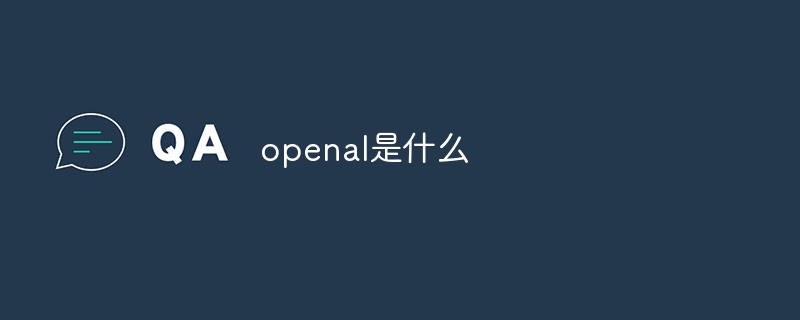Home >Common Problem >what is openal
what is openal
- 小老鼠Original
- 2023-08-21 16:16:0813772browse
OpenAL is an open cross-platform audio library for handling the playback and mixing of 3D audio and multi-channel audio. It was developed by Creative Labs and was originally used for game development but is now widely used. in fields such as multimedia applications, virtual reality, augmented reality and audio editing. OpenAL provides developers with an API to control audio effects, which can be used for the development of games, multimedia applications and other audio-related software.

OpenAL is an open cross-platform audio library for handling the playback and mixing of 3D audio and multi-channel audio. Developed by Creative Labs, it was originally used for game development, but is now widely used in fields such as multimedia applications, virtual reality, augmented reality, and audio editing.
OpenAL provides a set of APIs (application programming interfaces) that enable developers to control audio parameters such as position, direction, distance, and volume in applications to achieve realistic 3D sound effects. It supports a variety of audio formats, including PCM, WAV, MP3, etc., and provides functions such as mixing, playback, and recording.
OpenAL has cross-platform features and can be used on multiple operating systems, including Windows, Mac OS X, Linux, etc. In addition, OpenAL also has some extension libraries, such as OpenAL Soft and OpenAL-ELC (OpenAL Enhanced), which provide more functions and effects.
In short, OpenAL is an open audio library for processing 3D audio and multi-channel audio. It provides developers with an API to control audio effects and can be used for the development of games, multimedia applications and other audio-related software. .
The above is the detailed content of what is openal. For more information, please follow other related articles on the PHP Chinese website!

